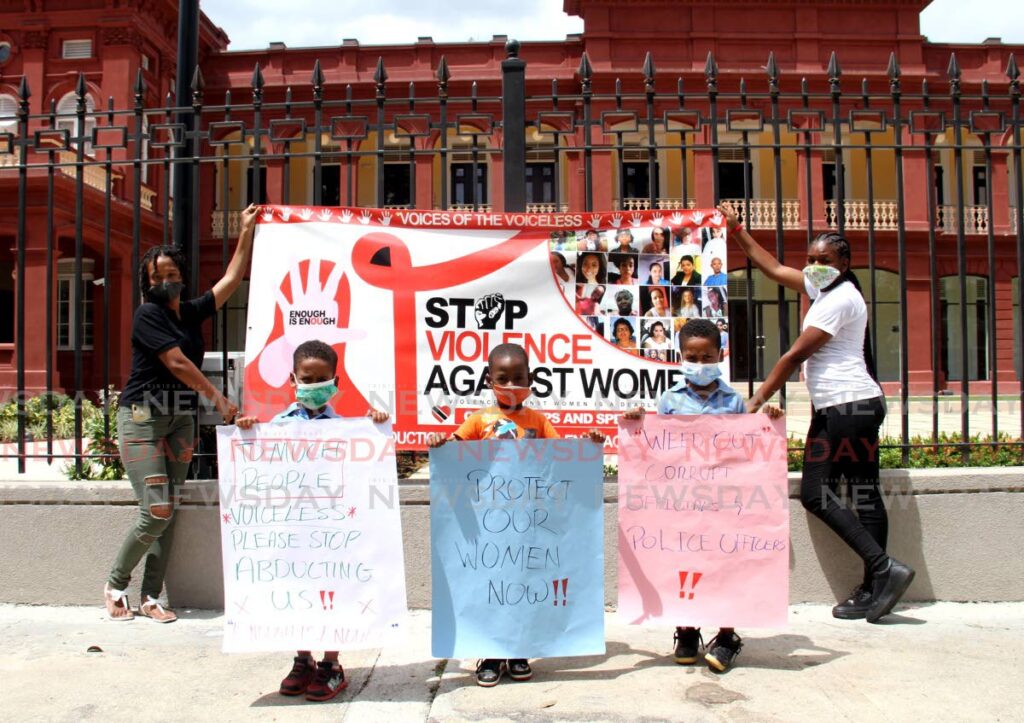The Shelter seeks help to raise funds for domestic violence victims

After being closed for over two years, The Shelter, a home for domestic violence survivors, has reopened and is hosting a fundraiser to help offset daily operating costs as well as to begin a few outdoor projects.
The Shelter, an NGO and charity, was opened in 1987 by former independent senator and human rights activist Diana Mahabir-Wyatt.
Sherron Harford vice-chair of the nine-member executive committee told Sunday Newsday it is the second oldest shelter in the country. It provides support for individual women, and women with children who are survivors of domestic violence.
In collaboration with MovieTowne, Port of Spain, The Shelter is hosting a fundraiser as part of the international premiere of the film Downton Abbey: A New Era, on April 28. Tickets are $150 and proceeds will go to the NGO.
“If any person or corporation would like to buy tickets because we are a charity, this will count as a donation to the shelter so it’s tax-deductible.”
The safehouse was closed for two and a half years for major renovations but reopened in September 2021 with its capacity increased from 12 to 21. However, it is operating at 75 per cent owing to covid19 regulations.
These regulations also mean that new residents must take a PCR test before and after a 14-day quarantine in a separate room.
According to Harford, during the pandemic construction paused for a while, the NGO was unable to do any major fundraising, and the staff and committee were unable to assist as many people as they would have liked.

“We were not in a position to take in a full requirement of people even though requests and reports of domestic violence went up 20 per cent during the pandemic. We were limited until we were able to complete the renovations and then we had to follow the Ministry of Health’s regulations.”
If another organisation called asking for assistance with a new client, they could only offer telephone counselling. Past residents were also offered the service but, in addition, the staff would check in on them to see how they were doing and if they needed any assistance.
By reaching out to friends, companies, the public, and people in the diaspora, the staff organised several hampers after determining what people needed the most.
“It wasn’t ideal but we did the best that we could. It was frustrating because we knew the numbers were climbing, but we had to wait until we finished the renovations and got the staff trained before we could take in whoever we were allowed to.
“Everyone knew there were more out there who weren’t getting the help they needed and it was equally frustrating for everyone. The feeling was two-fold. There is a part of you that wants to ensure you put your best foot forward and not compromise on the quality of care or empathy that is given but there is also the feeling of failure for not helping everyone who needs it.”
The Shelter has a paid staff of seven trained professionals and maintenance staff, as well as consultants and volunteers.
She said the constant need to provide the best care possible motivates them to continuously look at new methods, seek information from international partners, follow best practices, and adhere to the protocols and procedures in place.

“People who work at a shelter, it’s not a job to them. This is not sitting behind a desk, working in an office. It’s like a vocation. It’s nurturing. It’s like growing a whole human being and helping them be the proudest and tallest that they can be. As such we have to protect our staff and give them the same empathy, kindness and professionalism that we offer our residents.”
The Shelter provides a holistic healing service to women and children.
First, the staff determines if the new residents need medical care. Then, they are assessed by a psychotherapist who determines what they will need to begin their emotional healing and design a treatment programme. The treatment is followed through by the safehouse’s in-house staff under the supervision of the psychotherapist as well as a committee member and UWI lecturer Dr Maria Gomes.
Other committee members include Principal Medical Officer Dr Maryam Abdool-Richards who handles the medical side of resident care, chairman Colin Mitchell, Stacey-Ann Paty and Sean Medina.
Harford stressed that every case and every solution is different and multifaceted.
“It all depends on what the perpetrator was inflicting on them because physical violence is not the only violence involved. There are many different levels of cruelty and control.
“When the resident reaches a certain point we determine what they would like to do. Do you already have a job, a career, a career goal, in the middle of doing a class? How can we help you to leave here well on the road to being a confident, safe, productive person?”
Having formed alliances with other agencies, The Shelter then reaches out to schools for academic or skill set training for the women, companies for jobs, and provides legal support and post-residency accommodation.
And since they have to ensure the children are not available to the perpetrator, the safehouse either arranges for them to attend a new school or The Shelter’s Samantha Isaacs Learning Centre which has been hosting virtual school for the women and children.
Harford explained that they only take in children who come in with their mothers – boys up to age 13 and girls up to age 18 – because not every family has a room to themselves, so it is mostly community living.
After age 13, boys were sent to homes for boys. If the girls were also survivors of domestic violence, they could stay after age 18. If not, the Ministry of Social Development and the committee would have to decide on a case-by-case basis if they could remain or be placed with a family member or another family home.

However, anyone in a domestic violence situation cannot just call and ask to be placed in or show up at the safehouse as survivors are generally assigned to various shelters.
Harford urged those who need help to call the hotline 800-SAVE run by the Gender and Child Affairs Department of the Office of the Prime Minister or call the police and ask for an officer assigned to the Gender-Based Violence Unit.
Those with questions can message The Shelter on its Facebook page.
For further information on the fundraiser, visit its Facebook or Instagram pages for contacts, or e-mail at admin@trinidadshelter.com.


Comments
"The Shelter seeks help to raise funds for domestic violence victims"